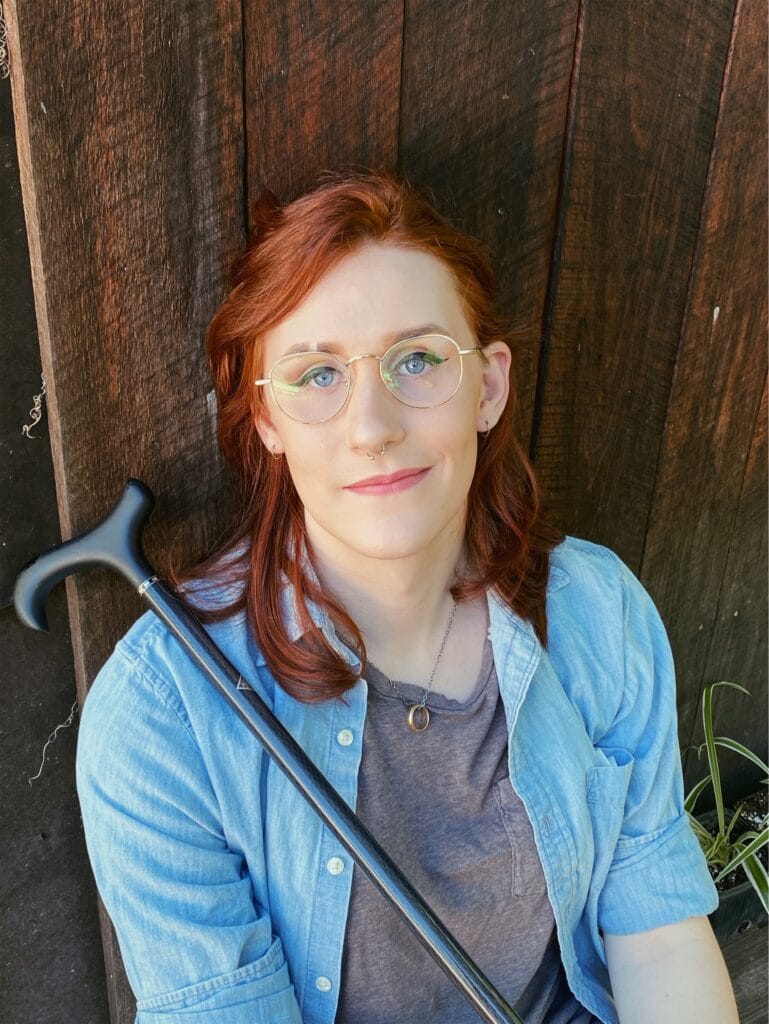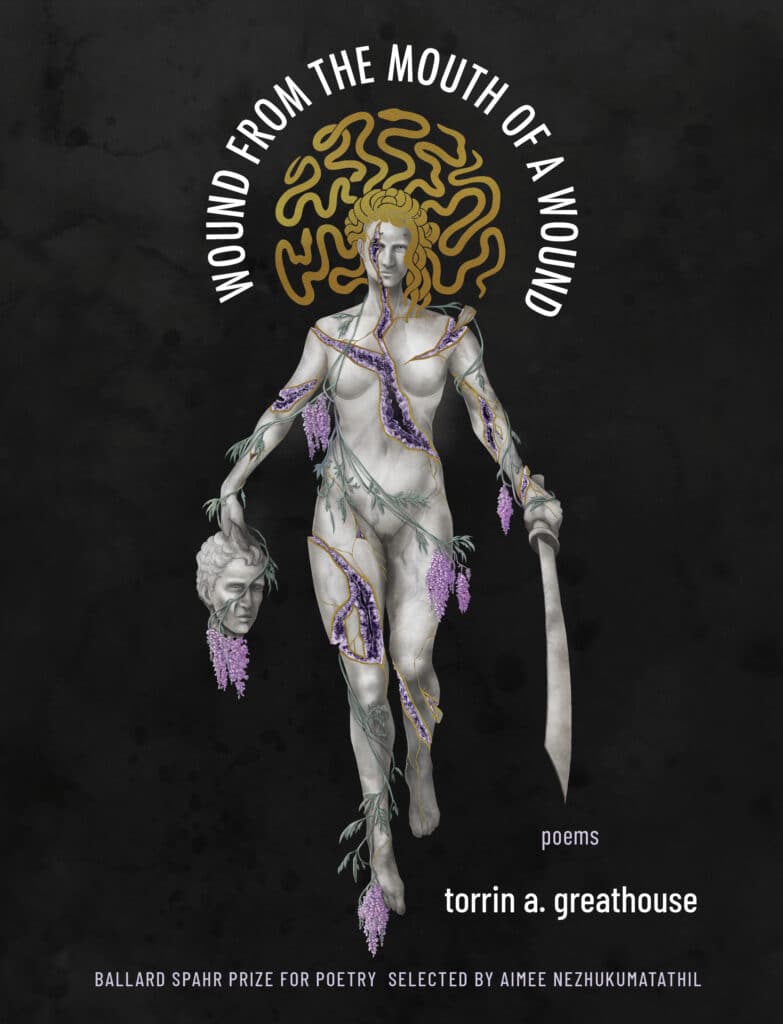torrin a. greathouse, author of Wound from the Mouth of a Wound
Poetry category, sponsored by Wellington Management, Inc.
Each week leading up to the 33rd annual Minnesota Book Awards announcement, we are featuring exclusive interviews with our 36 finalists. You can also watch the authors in conversation with their fellow category finalists here.
In a year defined by a pandemic and its fallout, virtually everything about our lives has changed in some way. How has COVID-19 impacted your writing habits and preferences? Has the unique zeitgeist of the past year influenced your writing output in any ways that you can pinpoint?

The last year, since the beginning of the pandemic, has entirely reconfigured my process as a writer. At first, this was due to the shifting of the world, suddenly having to adapt my pedagogy to an entirely digital environment. I stopped writing for months but slowly returned to it. Then, in November of last year, I contracted COVID and was left barely able to function for the better part of two months. Now, I’ve returned to writing with what feels like a different mind; COVID- 19 has distinct, and less discussed, neurological symptoms which only sometimes improve once the disease has vanished. I find that I write slower now, a more methodical pace, moving through the fog and unfamiliar terrain of my head. I’m unsure if my old way of writing will ever return, or if the virus has changed it irrevocably.
Would you tell us one or two things about your finalist book that you are particularly proud of, and why? (Sure, it may feel a bit un-Minnesotan to say so, but it’s not boasting if we ask!)
The thing I’m proudest of in this collection is its various formal innovations, particularly the mirror sonnet and the burning haibun. In my opinion, a form best serves a poem when its content could only properly inhabit that form, and I feel like I created two shapes within this collection that perfectly serve their poems, and which also open up new possibilities for other queer poets.
What do you hope that your audience learns or takes away from your book?

While both disabled and trans existence have always been fraught throughout modern history, 2021 is a particularly brutal moment to exist in either of these subject positions—never mind their intersection. There are a plethora of attacks occurring on legal protections for these groups, meanwhile, the federal government does little to reinstate any protections lost during the previous administration. At the moment of writing this, there are at least 50 bills with anti-trans provisions being proposed in 24 different states. Simultaneously, COVID-19 restrictions and vaccination measures in most states are failing wholesale to protect all but a narrow range of vulnerable disabled populations.
I hope that readers of my collection, particularly in this political moment, walk away from it with a deepened understanding of the ways that complex intersecting forms of medical, legal, institutional, and interpersonal violence harm the lives of trans and disabled people.
Minnesota enjoys a reputation as a place that values literature and reading. If this sentiment rings true for you, what about our home state makes it such a welcoming and conductive place for writers?
As a writer whose life has necessitated moving frequently, I’ve encountered a lot of different literary scenes, and Minnesota’s has been one of the most genuinely kind and welcoming groups of people I’ve encountered. From individual authors to organizers and publishers, to the staff of some of the Twin Cities’ gorgeous indie bookstores, it’s been a real joy to join this scene. Not only that, but I’ve been lucky enough to share space, read with, and even share meals with all of the other finalists in my genre. It absolutely makes me feel like my book is being judged in a category of colleagues and friends.
What advice would you give to an aspiring writer with an interest in your category?
The best thing aspiring poets can do for their craft is read broadly and voraciously. Read what pulls you in and you immediately adore, read the work that inspires the poets who inspire you, but also read the poems you dislike or cannot make sense of—they will teach you just as much, maybe more, about your poetics than what you love. Lastly, don’t neglect your study of “craft” though that term is worth troubling for its historical entanglement with racism, sexism, classism, ableism, and transphobia. Still, there are many stockpiles of articles available for even writers without academic support, free craft talks on YouTube, and I know that as someone who wrote my first collection before entering the MFA, these were an invaluable resource for my writing.
Tell us something about yourself that is not widely known! (It doesn’t have to be about your writing.)
While poetry is my truest love as a writer, it took me a while to arrive at the genre. My earliest forays into writing were as the vocalist and songwriter for terrible high school punk bands. Which was closely followed by an undergraduate degree in magazine journalism, though I became far more enamored with the archival research side of that work—an element I think you can trace in my poetry.
torrin a. greathouse is the author of boy/girl/ghost and assistant editor of The Shallow Ends. She received fellowships from Zoeglossia, the Effing Foundation, and the University of Arizona Poetry Center. She is an MFA candidate at the University of Minnesota.

